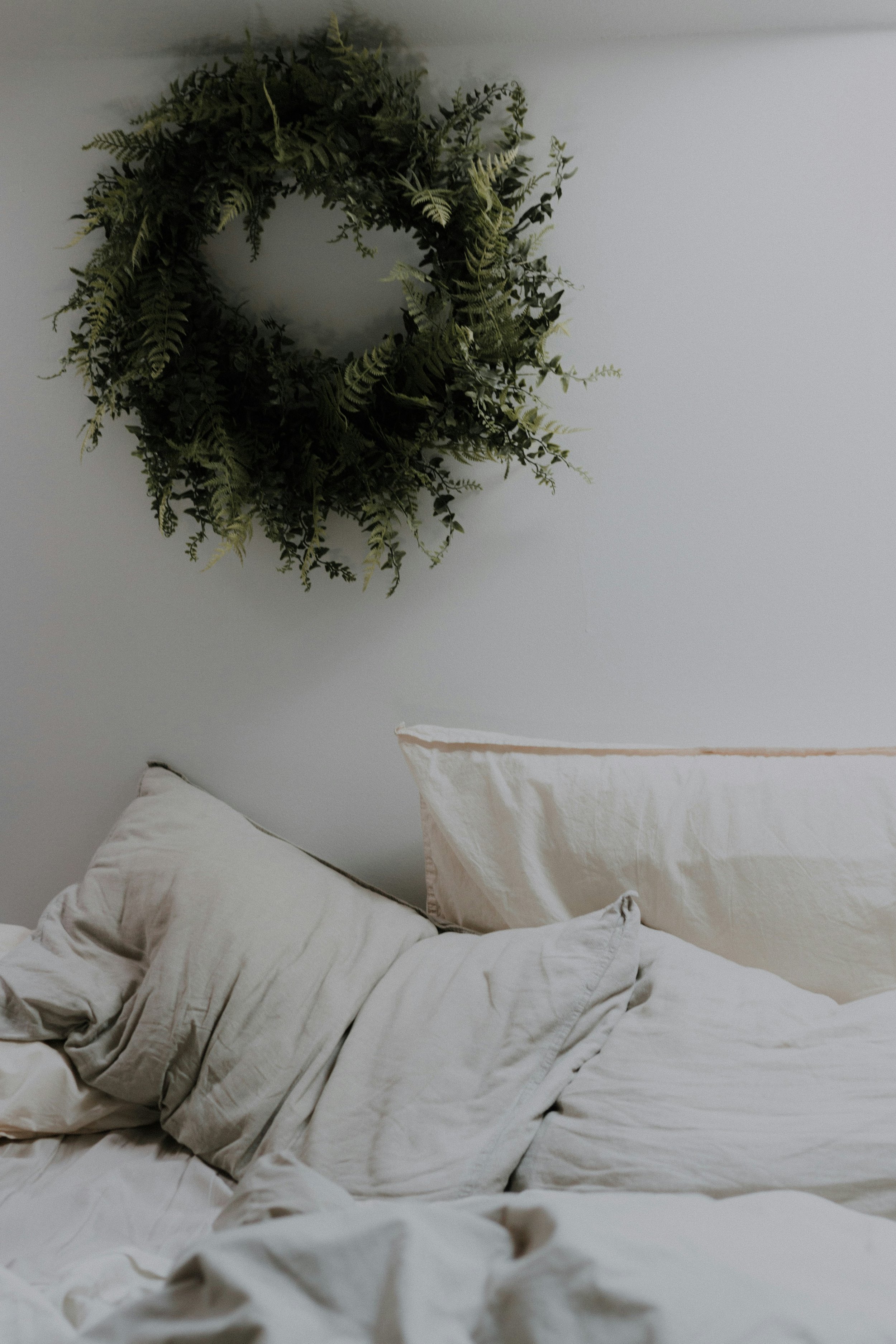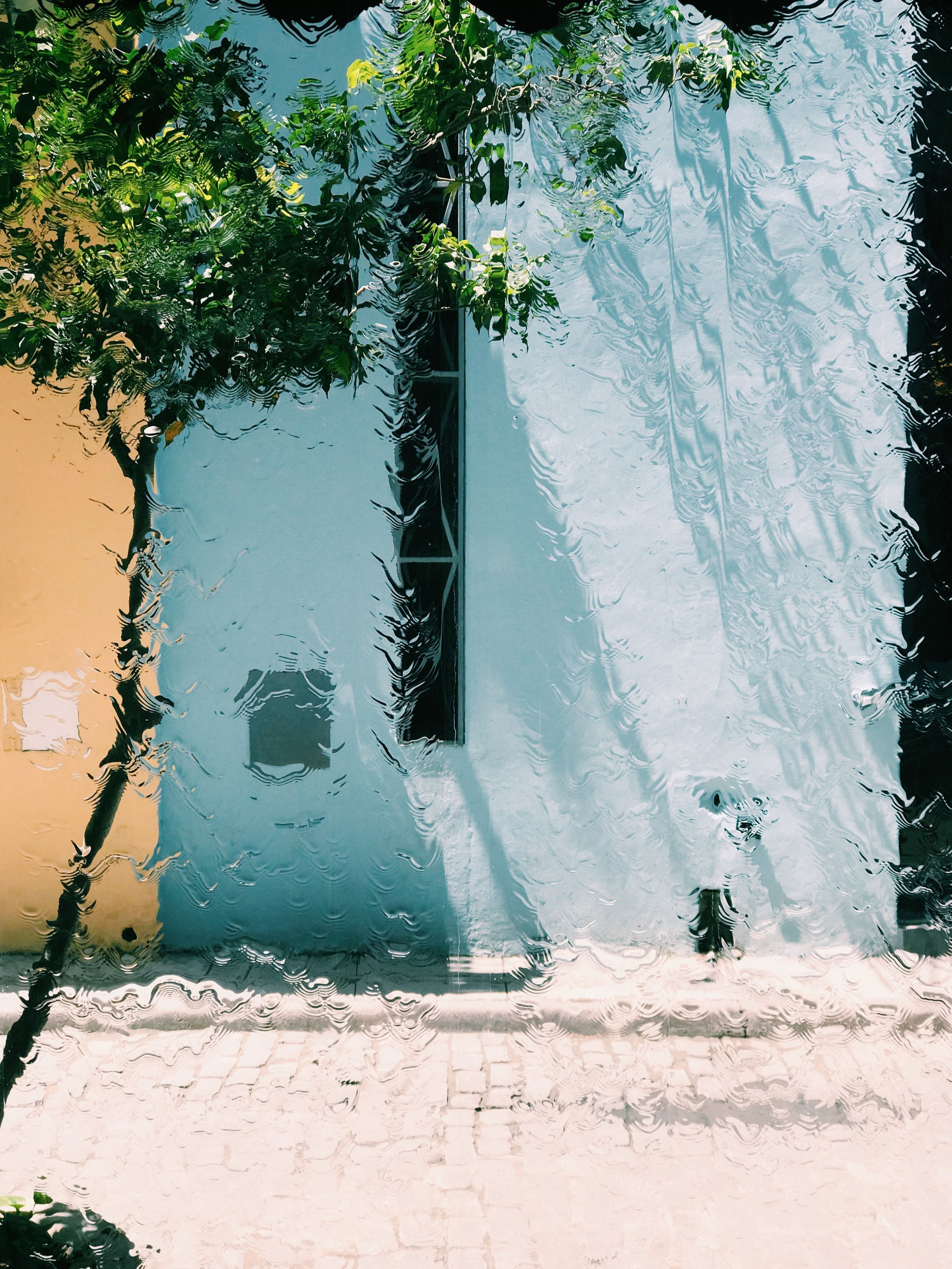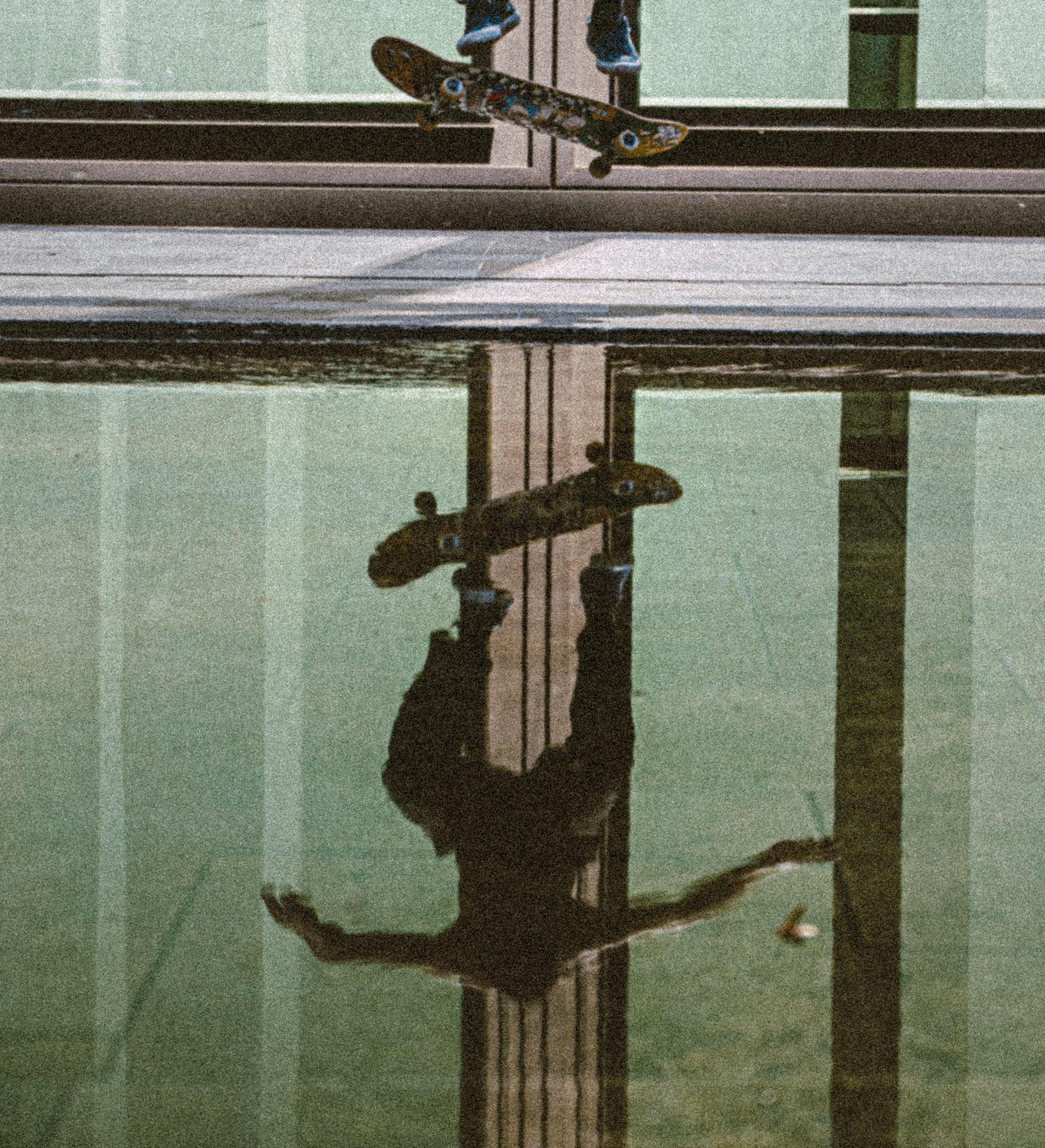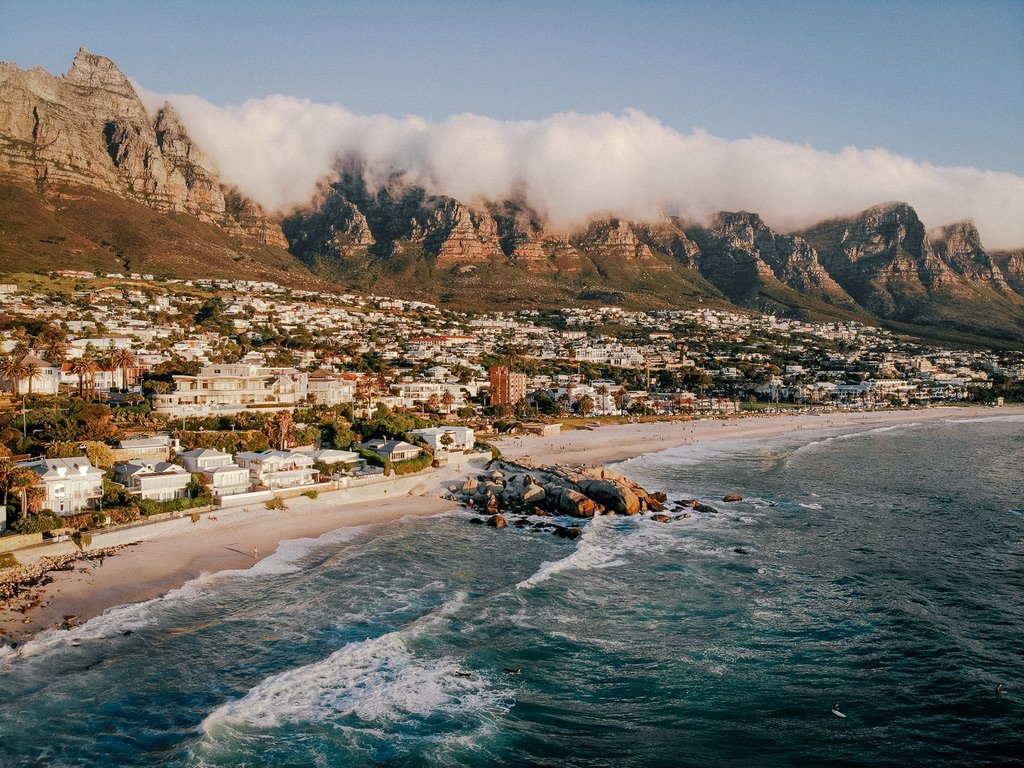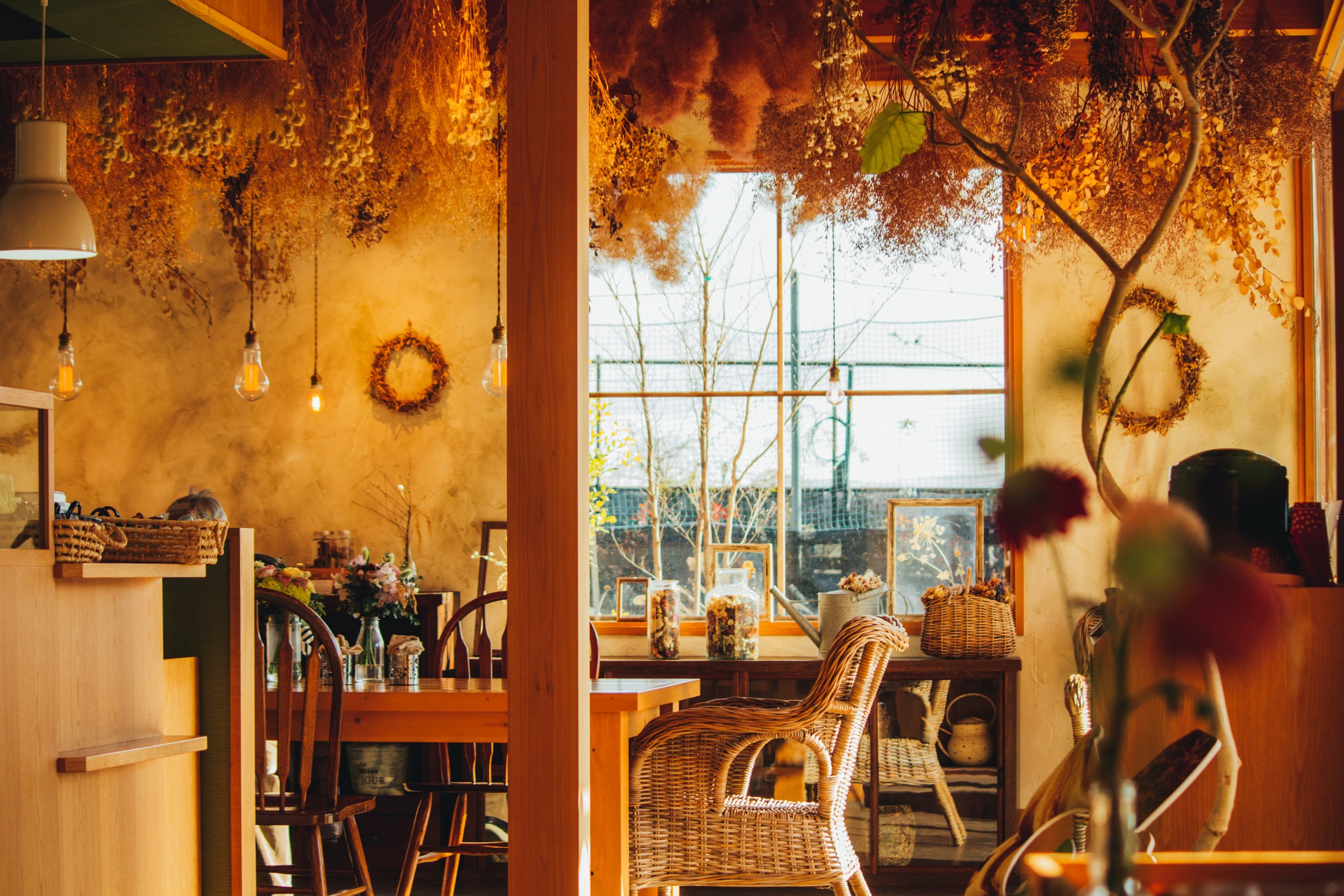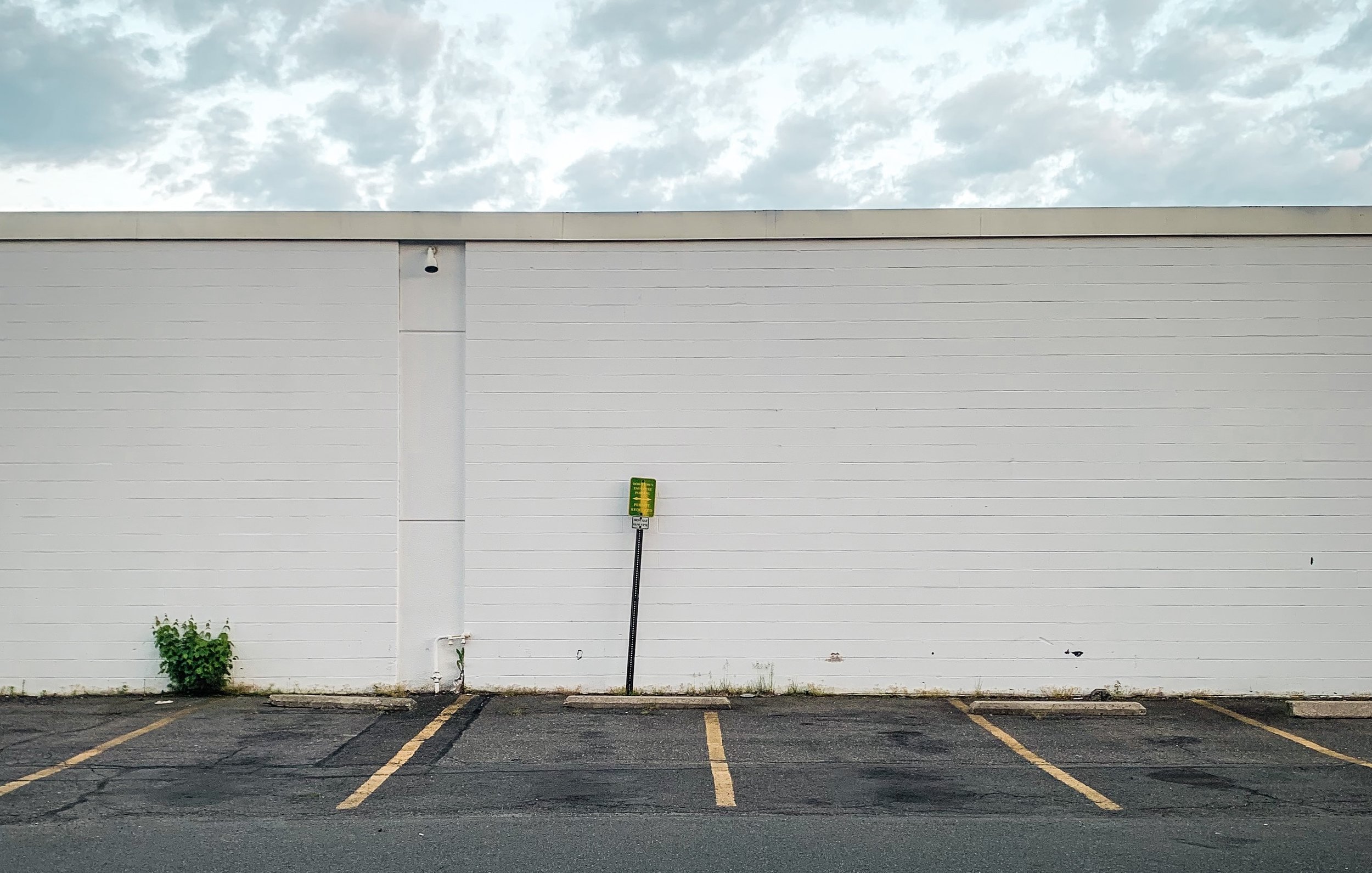To the Specter Who Haunts Our House

I feel you here as soon as I see the roses.
We have driven from London in the rare October sun, the suburban sprawl dissolving into the Lake District and then into the moors, Scotland unspooling itself before us. An unease fell over the car somewhere around Northumberland, and by the time we were whizzing past the illuminated golf courses of Gleneagles, it settled into my stomach—a stone sunk by the force of memories, though not my own.
I have known about this mythic house for a while now—the house where he spent the brutal pandemic year hiding with you and six others, a house seething with echoes of a love story past. Standing now before the stoop’s flowerpots, I think only about the story of how you planted these roses in the thrashing rain, growing something that could be a future, except now it’s me who walks your garden.
*
Jack and I fell in love through stories. We unraveled our pasts with liberty on a sailboat in France, reunited six years after our first date. We relived first rugby matches and violin recitals, the movies that made us and the books that wrecked us, our heartbreaks and the first time each of us had said “I love you.” We drank Last Words and explained Friday night traditions and how we’re both afraid of flying. Under dappled sunlight, we talked about the places we’d lived and the people we’d loved. We interrupted these stories only to watch the fish flash in the glittering, Mediterranean sun or shelter from rainstorms in the comfort of our little v-berth. The exercise of excavating our pasts felt insistent in its honesty, and therefore immediate in its intimacy. Finally, we opened the last chapter—the year that had just passed. And that’s when he told me about you.
That he had loved before, and that he had loved you before, was not strange to me, though the proximity of your end to my beginning was something to contend with. He had lived through a pandemic with you, moved to Switzerland with you, built a home in Scotland with you. I later learned the very sailboat on which we told our stories was the same one you two had rented earlier that summer. I didn’t know that everywhere I’d been, you had been, too. Even when we moved back to London, it was to live in the garden flat where he left you.
Your life together in London consisted of a week-long breakup. It was there, on the blue couch, that he wrapped your visions of cottages and roses in packing paper and sent them away. When you rang the doorbell one Saturday morning to see the dogs, I accepted the encounter as logical, polite. In cities, people often run into exes. There, you were something concrete, something that could be avoided by skirting the Notting Hill subway stop. I felt only mildly bothered by the fact that we’d so far only slept in beds you also slept in.
But 500 miles north, there was the house, the first place he’d ever felt at home. Was it because of you? You lived and worked and fought and drank and built a life there when what started as a two-month hideaway melted into a yearlong lockdown. When Jack first suggested a drive to Scotland, I wanted to think it was merely my love for him, my desire to see the places meaningful to him, that made me agree; but I suspect it was a yet unspoken curiosity about you, about what happened in that house.
So we loaded a rented car with the dogs, bottles of wine, and board games, and took the highway north, away from the city. But not away from you. On the way up, Jack’s brother calls and reminds him to hide the ducks. I don’t know what this means, but it turns out it doesn’t matter, because these enigmatic ducks are not the only thing you left behind. We arrive in Scotland, on Halloween, to a haunted house.
*
Out of place amongst the more stately homes perched on the edge of a Caledonian nowhere, this house is falling down around us. In the leftover lavender sachets and Orient express tickets you bought him for Christmas, I find a dusty monument to the life you led here.
That first night, I use your left-behind face wash because I forgot mine, then Google the name on the empty birth control packets I find in the bedside drawer. Perhaps I think this will tell me something to make you less unknown to me, less the beautiful stranger I see in photos picking up a dog in the Netherlands last November, a dog I now feed.
Jack and I fall into another bed in which you once slept, and I lie awake, eyeing the two ducks on the windowsill. He claims they belong to him alone. But I have a lingering vision of you buying them as something symbolic, together, the yellow one yours, arranged so that its bill kisses the neck of the green one, his.
Gripped by a morbid—almost grotesque—curiosity, I develop an obsession with piecing together the life you two led here. In France, even in London, I resisted the urge to be curious, to be jealous, to stalk your LinkedIn or wonder what kind of perfume you wore. It would have meant acknowledging your existence, acknowledging that before he loved me, he loved you.
But in Scotland, your presence is boundless. In London, you were an ex. Here, you are someone with whom he once had a life. A future. You are a ghost—not malevolent though surely omnipresent. I step through you in every doorframe, sleep next to you in every bed, brush hands with you on every whisky glass and pool cue and blue-flowered teapot I find out months later was yours. You float through these hallways —so why am I here, struggling to build something new around your remains?
In late fall, we drive up to Crieff for lunch and I forget to look at the sheep and stone walls. The whole time, I muse on whether we pointed to the same houses with the same red doors or commented on the way the sun hits the moors at 3pm. There are things I’m glad he’s told me about you and things I wish had stayed buried, like the last fantasy of a dying relationship you wove for him on the couch when you broke up, the one about the little cottage you’d share just north of here, a place where you’d plant flowers and he’d play with chimerical children in the yard. Every house I see I think: “Was it there you pictured?”
*
Jack and I talk in vagaries about returning to London, but autumn dissolves into winter, and we stay. He loves this house. I insist to myself that I ought not confuse his love of this place with a lingering love for who he shared it with. To avoid some gothic madness, I sit down in your rose garden to write you a letter—an attempt at exorcism, goodbye, get-out, please-leave-us-alone.
It is only then that the real question occurs to me: One day, when the radiance of early love and the hope of gardens and dogs and Scotland have faded, will someone else write this letter to me? Feel uneasy as she stumbles across empty contact lens containers and forgotten earrings? Water the herbs I grew in your old wooden planter? Find and hide the polaroid of us on Valentine’s Day? And in doing so, will she relegate me to an unwelcome specter, another bodach for this Scottish moor, in the same way I’ve seen your apparition here and tried to erase it? My determination to find your shadow in every crumpled paper and snipped-off dress tag around the house is not anxiety that you’ll re-materialize, really—it’s that someone else will still come after me. And that I’ll become another you.
“There are no ghostbusters to call for ex-girlfriends. Nothing will drive out the honest-to-God anxiety you represent. The specter of preemptive loss is independent of beds you’ve slept in or ducks you once touched; it’s the inherent and vicious uncertainty of new love.”
Finally, I ask him if we can move bedrooms, to a bed you’ve never slept in. He agrees, though I suspect he doesn’t fully grasp why. I spend the next day hanging curtains and moving photos. Lingering by the window overlooking the rose garden, I contemplate the ducks.
And I move them to our new room. Because the phantom that’s been haunting me isn’t you.
I’m the one letting your whispers join us at the dinner table. I’m the one asking this house unanswerable questions, hoping it will tell me where your missteps fell so that I may tread more carefully. When he claims he doesn’t think of you, I believe him—it’s me, searching for you in forgotten belongings and fading memories, that’s kept your ghost alive.
There are no ghostbusters to call for ex-girlfriends. Nothing will drive out the honest-to-God anxiety you represent. The specter of preemptive loss is independent of beds you’ve slept in or ducks you once touched; it’s the inherent and vicious uncertainty of new love. I, too, can imagine cottages and weddings and a thousand glitter-drenched New Year’s Eves on the steps of this house. I can imagine a lifetime, and it could all be gone tomorrow.
The only thing of which I can be certain is that the longer I miss what we’re building in favor of a preoccupation with something that’s over, the more closely connected your past and my future become.
*
We leave the house for the summer. When we return a few months later, my heart flutters when we near the highlands. As we pull into the driveway—the grass taller, the roses replaced by daffodils I planted—the house is once again alight with memories. But this time, when I walk through the door, all I see is me.
I see where my parents and friends have laughed on weekend trips to see us; the yard where he taught me to play rugby and I gave myself a black eye; the garage with the 1970 Morris Minor we bought that I can barely drive; the Adirondack chairs where I met his dad over scotch in the pouring rain; the couch where we stayed up until 4 a.m. to watch the Oscars; the kitchen where we made pesto and cheese every night for a week because we couldn’t stop watching Burn Notice; the room we stayed in when the heat went out and we had only the fireplace and the dogs for warmth; the table where we’ve spent countless Sundays playing chess and talking about the future.
Even as I brooded over you, Jack and I were creating something new, and sometime in the last year, you left. There wasn’t one moment of catharsis. You didn’t disintegrate before my eyes when I moved the ducks or dug up the roses, and I still feel an unpleasant twist in my stomach when I find your old love letters. But the fear that you and I are destined for the same fate has been replaced by something else. I pass myself in these hallways too, and some version of me—the one who mused endlessly about you — will always haunt them. Our futures may be divergent, but our pasts in this house are intertwined. We’ll haunt it together.
About the Author
Ayla Besemer grew up living and traveling on a boat with her family. She majored in Humanities and journalism at Yale University, where she also wrote for the Yale Daily News and its associated publications. Since graduating in 2019, Ayla has worked as an English instructor, ocean science educator, and political consultant. Currently, she works on water policy and communications for the Water for Colorado Coalition while pursuing a master’s in Marine Systems and Policy from the University of Edinburgh. Ayla has previously been published in outlets including Distiller Magazine, Astronomy Magazine, Yale Daily News Magazine, and Passagemaker. She resides in the Scottish highlands with her partner and their two dogs, Oscar and Hugo.
Read Ayla’s “Behind the Essay” interview in our newsletter.
Header photo by Matthew Feeney.
Edited by Aube Rey Lescure.



